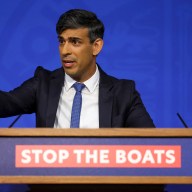 Carlos Beltran during Game Five of the 2013 World Series at Busch Stadium.
Carlos Beltran during Game Five of the 2013 World Series at Busch Stadium.
Credit: Getty Images
At 36, Carlos Beltrán has established himself as the main Puerto Rican baseball player of his generation. While he waits out the free agency period, the veteran outfielder spoke to Metro about his experiences in and out of the baseball diamond.
Metro: This is the third time you’ve been a free agent in the Majors. What did you learn from the first two times, that you applied this time around?
Beltrán: Honestly, I think one has to be patient. Free agency can be fun, but also a bit stressful. You might not know about these teams. Sometimes, you think a team has interest in you and then another one comes up. You believe a team will offer a certain number of years and then they offer less. My past experiences were good and I’m looking for my last contract.
About the Carlos Beltrán Baseball Academy, how do you think it’s progressed since you started it?
Incredibly, from when we started, to how we developed these young men, is something that I can’t even describe. They leave well defined,they know what they want with a lot of determination and discipline. We work with kids between the ages of 15 and 18, who are going through tough ages, but they have dreams of making it to the Major Leagues and representing their country. At the end of the day, academics are our main focus.
Does Carlos Beltrán feel like a proud father to these boys?
Well, I traveled to Puerto Rico on an off-day for the graduation. I arrived at 5:00 in the morning and the ceremony was at 9:00. It was our first graduating class and I did feel very proud. I felt happy after seeing the faces of these young men and their families upon graduating.
During your postseason career, you’ve put up amazing numbers. How do you minimize the pressure that the playoffs bring to be able to perform so well?
I enjoy what I do. The postseason is totally different, The adrenaline, wanting to do well, and concentration are important. During my whole career, I’ve always controlled my emotions. In a playoff situation, if you control your emotions, you might have better results.
In Game 1 of the World Series, you injured yourself after robbing David Ortíz of a home run. What went through your mind as you were being removed from the game?
It was painful. I had to come out of the game, because I felt horrible. I had great pain in my chest and had trouble breathing. I was afraid, because I’d never experienced that type of pain before. Thank God all the tests came out negative.It affected my swing a little bit, though.
That final play in Game 3, was it or was it not obstruction?
The one at third base? Of course, it was clear. The third baseman lifted his legs to prevent the runner to score. It’s apparent on replay. With the emotion of the game, he might not have been aware of what he did. He’ll never admit it, but the replays show he clearly obstructed.
How would you describe your different experiences in the Major Leagues? From the humble beginnings in Kansas City, the pressure cooker in New York, and the winning culture of St. Louis.
Everything is an evolution. When you come up to the Big Leagues, you don’t know how good you’re going to be. The years in Kansas City went by really fast. Before I knew it, I was traded to Houston, where I got my first playoff opportunity. Then I signed with New York, where expectations are always high to win. Then, on to St. Louis, where the market is smaller, but highly successful.
Is winning the World Series what’s left now for you?
Of course it is. That is what every ballplayer wants: to get to that moment. I just have to keep working hard and, God willing, the team I sign with gives me that chance.
















